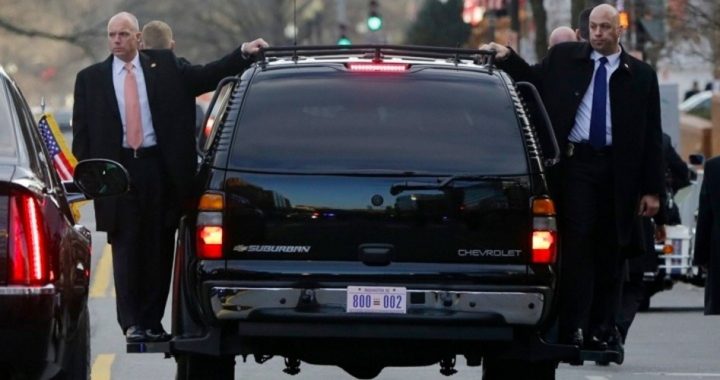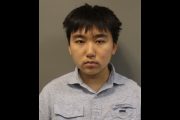
Colorado Governor John Hickenlooper is expected to sign into law a bill that would give the U.S. Secret Service “limited” police power while operating in the state of Colorado. The bill, SB 13-013, which has already been passed by both the Colorado House and Senate, has sparked a firestorm of controversy because of fears that the proposed power could be used by Secret Service agents, acting on behalf of the Obama administration, to arrest sheriffs in Colorado who refuse to enforce unconstitutional federal gun controls.
Just such a scenario of federal overreach was expressed by Colorado state Representative Lori Saine, who was quoted on March 29 by World Net Daily exclaiming:
This is insane! In theory if a Secret Service agent is in a county where the sheriff has refused to enforce some of the recent unenforceable gun laws, the agent could [ignore the sheriff entirely and] arrest any individual if he believes the law has been broken….
I believe it is intended to be used for setting up a framework so that at some other time they could expand it to possibly include being able to arrest a sheriff who is refusing to enforce unconstitutional laws.
Charley Barnes, at K99.com in Denver, further fanned the controversy within Colorado when he observed on April 1:
By the sounds of it, Colorado is being targeted with an attempt to set up loopholes that will allow the U.S. Secret Service to arrest and remove an elected sheriff for refusing to enforce the law, or anyone [else] breaking the law.
His post went viral, fostering so many phone calls and emails to the Larimer County Sheriff’s office that Sheriff Justin Smith, who does not share Barnes’ view, was forced to respond and “clarify” what, he say, SB 13 is really intended to accomplish. Here is Smith’s response to Barnes:
In the last decade, Colorado started to grant limited authority to certain federal law enforcement agencies. The purpose is so that if they witness a citizen being victimized, they can act and turn the case over to a local police officer (because most crimes against our citizens are not federal crimes and they have no other jurisdiction to intervene as federal officers).
The law also allows them, in cases where they are investigating a crime that is against both state and federal law, to file the case with our local DA [District Attorney] in situations where the damage amount doesn’t meet a threshold where the federal prosecutors will file it in federal court.
If you read the bill, you will see the limitations clearly in it. As sheriffs, we are the beacon against over reach by federal authorities, but in this situation, it is not the case.
(signed) — Sheriff Justin Smith
However, when one actually reads the specific language of SB 13, a more ominous picture emerges that undermines Smith’s disclaimer. Taken directly from the language of the law,
The law gives a special agent, uniform[ed] division officer, physical security technician, physical security specialist, or special officer of the United States Secret Service limited peace officer authority while working in Colorado.
On its face, the law gives “limited peace officer authority,” but it does so without specifying any limits on that authority. But the law does specify the circumstances where a Secret Service agent may operate as a peace officer in Colorado:
(I) RESPONDING TO A NONFEDERAL FELONY OR MISDEMEANOR THAT HAS BEEN COMMITTED IN HIS OR HER PRESENCE;
(II) RESPONDING TO AN EMERGENCY SITUATION IN WHICH HE OR SHE HAS PROBABLE CAUSE TO BELIEVE THAT A NONFEDERAL FELONY OR MISDEMEANOR INVOLVING INJURY OR THREAT OF INJURY TO A PERSON OR PROPERTY HAS BEEN, OR IS BEING, COMMITTED AND IMMEDIATE ACTION IS REQUIRED TO PREVENT ESCAPE, SERIOUS BODILY INJURY, OR DESTRUCTION OF PROPERTY;
(III) RENDERING ASSISTANCE AT THE REQUEST OF A COLORADO PEACE OFFICER; OR
(IV) EFFECTING AN ARREST OR PROVIDING ASSISTANCE AS PART OF A BONA FIDE TASK FORCE OR JOINT INVESTIGATION WITH COLORADO PEACE OFFICERS.
Simply put, a Secret Service agent is granted the same powers as local law enforcement officers if he
1. Sees a crime being committed,
2. Has “probable cause” that a crime has been committed or is about to be committed,
3. Has been asked to assist local law enforcement, or
4. Is part of a joint task force with local law enforcement.
Eerily, the bill goes on to say that this federal agent doesn’t have to follow Colorado rules when exercising those powers. Here’s more from the law:
(b) THE SECRET SERVICE AGENT ACTS IN ACCORDANCE WITH THE RULES AND REGULATIONS OF HIS OR HER EMPLOYING AGENCY.
And who employs this Secret Service Agent? The U.S. government! And under the ground rules specified by SB 13-013, the Fourth Amendment is erased from consideration. Here’s the language:
(2) A SECRET SERVICE AGENT IS A PERSON WHO IS EMPLOYED BY THE UNITED STATES GOVERNMENT, ASSIGNED TO THE UNITED STATES SECRET SERVICE, EMPOWERED TO EFFECT AN ARREST WITH OR WITHOUT A WARRANT FOR VIOLATIONS OF THE UNITED STATES CODE, AND AUTHORIZED TO CARRY A FIREARM AND USE DEADLY FORCE IN THE PERFORMANCE OF HIS OR HER DUTIES AS A FEDERAL LAW ENFORCEMENT OFFICER. [Italics added for emphasis.]
This is plain English. The Secret Service agent, acting as an agent of the federal government and not the state of Colorado, may use deadly force if necessary to arrest an individual without a warrant for any activity under the United States Code the Secret Service agent observes that gives him “probable cause” to conduct the arrest.
Is it too much of a stretch to conjure that the U.S. Secret Service might regard a Colorado county sheriff refusing to enforce Obama gun controls as a violation of the United States Code and, upon observing that violation, might move to arrest the sheriff, using deadly force as necessary?
Some might suggest that this is stretching the potential impact of SB 13-013 beyond what’s intended — and perhaps even beyond what could reasonably occur in the name of SB-013. Perhaps. But it is helpful to remember that the United States Code is over 200,000 pages long and contains 51 titles, one of which is entitled Domestic Security. The Department of Homeland Security (DHS) enforces that part of the Code, and, as summarized by Wikipedia, it “works in the civilian sphere to protect the United States within … its borders. Its stated goal is to prepare for, prevent, and respond to domestic emergencies, particularly terrorism.”
Is it too much of a stretch to see how failure to enforce a state law by a county sheriff might be perceived to enable terrorists in the eyes of the U.S. Secret Service?
As Charley Barnes put it at K99.com:
I think the bottom line is [that] there are now around 350 sheriffs from all across the country who are staring into a barrel of trouble when they refuse to arrest someone based on the 2nd Amendment issues they say they will not enforce.
At least one pro-gun Republican lawmaker who voted in favor of SB 13-013 is having second thoughts. In an email to one of his constituents, state Senator Kevin Grantham lamented:
I will tell you what I’ve been telling everyone about this legislation since it’s taken on a life of its own: as far as votes go I suppose all things being equal I would probably take that one back….
The one criticism leveled against the bill and against my vote, to which I humbly acquiesce, is that it does grant power where none existed before. For that alone I would like to have [my] vote back.
Grantham expressed the same sentiment at an April 6 Town Hall meeting in Falcon, Colorado, that was attended by this reporter. On that occasion, Grantham, a strong supporter of the Second Amendment, also noted that the bill was “intended” only to assist local and state law enforcement officials in their duties. But the big question: Could the legislation be used as a rationale for something more sinister, irrespective of the intended purpose?
The furor will likely continue and undoubtedly even increase if and when a Secret Service agent actually attempts to do exactly what Barnes has suggested — that is, he attempts to arrest a local sheriff for refusing to enforce unconstitutional federal gun controls.
Photo of U.S. Secret Service agents: AP Images
A graduate of Cornell University and a former investment advisor, Bob is a regular contributor to The New American magazine and blogs frequently at www.LightFromTheRight.com, primarily on economics and politics. He can be reached at [email protected].



